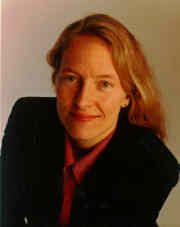
| A Business Forum Book Review:
Strategy as Structured Chaos |

Change and challenge may be the most overworked words in today's business lexicon, but there are no better synonyms to describe the agitation -- and often chaos -- of our global commercial and financial markets. The popularly-accepted practices of strategic definition and execution that appeared to work well until recently are no longer even effectual. Determining an end-point, agreeing upon basic assumptions, and mapping the process toward a fixed objective over a defined period of time ... just doesn't work anymore! Following a map that fails to represent a constantly changing landscape is simply foolhardy.
Competing on the Edge: Strategy as Structured Chaos by Shona L. Brown and Kathleen M. Eisenhardt (Harvard Business School Press, 284 pages, $27.95) offers a new strategic paradigm for navigating the treacherous waters of today's tumultuous markets. "... the key strategic challenge facing managers in many contemporary businesses is managing this change. The challenge is to react quickly, anticipate when possible, and lead change where appropriate. A manager's dilemma is how to do this, not just once or every now and then, but consistently." Brown and Eisenhardt argue "... that competing on the edge is the unpredictable, often uncontrolled, and even inefficient strategy that nonetheless defines best practice for managing change."
Informative case studies are drawn from many well-known corporations, e.g., Banc One, British Airways, Campbell Soup, Fidelity Investments, Hewlett-Packard and Microsoft. Innovative case studies are also introduced from some newer strategic winners, e.g., Amazon.com. America Online, Blockbuster Video, Laura Ashley, Nintendo and Starbucks. Perhaps the most illuminating case studies are drawn from unlikely sources, e.g., the Grateful Dead, the Atlanta Braves and the Chicago Bulls. The AT&Ts of the world are no longer relevant role models.
The Grateful Dead offer a vivid illustration of this new strategic paradigm. Without the inputs of any MBAs, the “Dead" developed their own unique product and strategy in the early 70s. "Influenced by rock but grounded firmly in their jazz roots, this band never plays a song the same way twice. They improvise. The band members respond continuously to each other and to the crowd as they play. Yet the music is structured. For example, there is a band leader, the bass player has a specific role, and each musician knows which chords may be played."
For more than 25 years, this band, "... until the death of its founder, Jerry Garcia, had been the music industry's top touring act and leader in touring revenues. The Grateful Dead created both a unique musical experience and an unusual business strategy. Unlike most rock bands, the Grateful Dead earned income predominantly from touring, not from sales of studio recordings. The band has, in fact, always encouraged fans to tape in concerts and has even provided a special taping section for the audience. The Grateful Dead was rock's premier improvisational band, and one of its biggest business successes."
This insightful case study is accompanied by the respected Rules for Jazz Improvisation:
- At any given time in a performance, know who the leader (soloist) is and where you are in the piece.
- The soloist should listen to and build off of the work of other members of the band.
- Know the rules in order to know how and when to break them.
- Experiment as a group (e.g., by changing or eliminating structure) or as an individual (e.g., by overblowing or fiddling with your instrument).
- Expect occasional "train-wrecks." Recover and move on.
- Do not play the same solo over and over; practice new approaches and styles in familiar pieces. Incorporating the unexpected is the essence of great jazz.
These Rules offer a contemporary guide for the design and execution of a relevant strategy at the edge of chaos and the edge of time; a strategy that is adaptable and paced to the organization's internal rhythm, rather than one driven by the competition.
"What are the 'laws' of competing on the edge?" Brown and Eisenhardt distill "... the themes of this book into ten laws, or rules. that articulate the key assumptions and best practices about strategy, organization and leadership:"
- Advantage is Temporary.
- Strategy is Diverse, Emergent, and Complicated.
- Reinvention is the Goal.
- Live in the Present.
- Stretch Out the Past.
- Reach into the Future.
- Time Pace Change
- Grow the Strategy.
- Drive Strategy from the Business Level.
- Repatch Businesses to Markets and Articulate the Whole.
The enterprise competing on the edge will establish the pace of change in its industry and which new products and services will set the standard, rather than reacting to its environment and the forces that are thrust upon it.
Your comments and suggestions for these pages are most welcomed!
|
Email: editor@businessforum.com
|
URL: http://www.businessforum.com/edge.html
Revised: November 7, 2001 TAF
© Copyright 1998, 2000, 2001 Thomas A. Faulhaber / The Business Forum Online®, All Rights Reserved